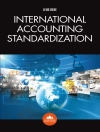Risk can be defined as the effect of uncertainty on objectives. It can originate from various sources. For example, uncertainty and threats from project failures in any phase (e.g., analysis, design, development, testing and production); from failures in corporate business across industries (e.g., information technology and software engineering, oil and gas, manufacturing, civil engineering, mechanical engineering, finance incl. financial markets, etc.). Substantial risk can also be created by accidents, natural causes and disasters, as well as deliberate attacks from an adversary or events of an uncertain or unpredictable cause. In general, risk management is a process of identification, assessment, and prioritisation of risk followed by the coordination of actions and deployment of resources to minimize, monitor, and control the probability and impact of undesired events. The objective of risk management is to ensure that uncertainty does not affect the achievement of business goals. In this book, Chapter One reviews a novel six sigma approach to risk management. Chapter Two aims to provide readers with a tool to identify evaluate and treat quality management system (QMS) risk. Chapter Three elaborates on economic approaches for the evaluation of risk deterioration on health of the population under the influence of negative factors.
Darnell Bowers
Risk Management [PDF ebook]
Past, Present and Future Directions
Risk Management [PDF ebook]
Past, Present and Future Directions
ซื้อ eBook เล่มนี้และรับฟรีอีก 1 เล่ม!
รูป PDF ● หน้า 157 ● ISBN 9781634854351 ● บรรณาธิการ Darnell Bowers ● สำนักพิมพ์ Nova Science Publishers ● การตีพิมพ์ 2016 ● ที่สามารถดาวน์โหลดได้ 3 ครั้ง ● เงินตรา EUR ● ID 7226910 ● ป้องกันการคัดลอก Adobe DRM
ต้องใช้เครื่องอ่านหนังสืออิเล็กทรอนิกส์ที่มีความสามารถ DRM












